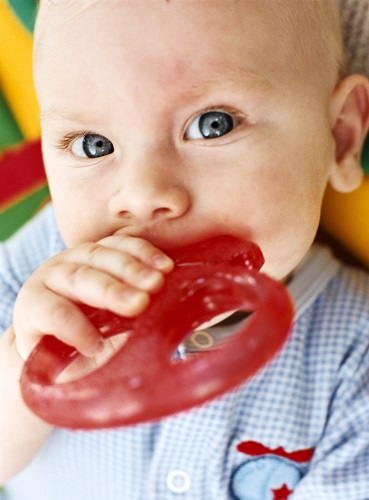Signs of Reflux
Gastro-Oesophageal Reflux (GOR), commonly termed reflux, is quite common in many babies. However, its severity differs between individuals. Most babies regurgitate, vomit or chuck after a feed in the early weeks; this is due to their digestive systems being immature. Or, they may not actually spill the contents from their mouths and the milk or solids which is mixed with stomach acid, comes only part of the way up the oesophagus and causes silent reflux or heartburn.
Signs of Reflux (GOR)
Here are some of the common symptoms of Reflux:
• Your baby may suffer from obvious pain
• Your baby may cry constantly or suddenly begin screaming
• Your baby may be generally irritable.
• Your baby may vomit frequently (generally after a feed)
This vomiting may be a gentle spill (positing) or projectile.
• You may find your baby has problems with feeding, such as:
- wanting to feed all the time for comfort
-wanting to not feed at all
-crying during feeding or after feeding
- they may pull away while feeding and arch their back.
• They may have poor sleep patterns such as catnapping during the day and frequent waking at night. Some refluxers, however, do sleep well at night.
More serious symptoms are:
• Weight loss or not gaining weight
• Recurrent chest infections
• Vomit with blood products in it.
• Respiratory issues such as choking, wheezing, cyanosis, or apnoea.
If you are concerned about your baby, or if they display any of these more serious symptoms you should seek immediate medical advice.
Diagnosis
Based on the symptoms that your child is presenting with, a diagnosis of reflux (GOR) can usually be made without any further investigation. However, if your child is presenting with more serious symptoms then further tests may be required. Speak to your doctor regarding these.
It is worth noting that not all of these symptoms need to be present for a diagnosis of Reflux to be made. Similarly, reflux may not be the diagnosis even if some of these signs are present. See your doctor if you suspect your baby has reflux, or if you have any concerns.
Medical Treatment
In most cases of infant reflux, no medical intervention will be required. However, your doctor may diagnose Gastro-Oesophageal Reflux(GORD) and recommend the use of a drug to treat the condition. You should not administer any over the counter preparations or drugs without the advice of your doctor as they may not be appropriate.
The information published herein is intended and strictly only for informational, educational, purposes and the same shall not be misconstrued as medical advice. If you are worried about your own health, or your child’s well being, seek immediate medical advice. You should never delay seeking medical advice, disregard medical advice, or discontinue medical treatment because of information on this website. Kimberly-Clark and/ or its subsidiaries assumes no liability for the interpretation and/or use of the information contained in this article. Further, while due care and caution has been taken to ensure that the content here is free from mistakes or omissions, Kimberly-Clark and/ or its subsidiaries makes no claims, promises or guarantees about the accuracy, completeness or adequacy of the information here, and to the extent permitted by law, Kimberly-Clark and/ or its subsidiaries do not accept any liability or responsibility for claims, errors or omissions.
Last Published* April, 2023
*Please note that the published date may not be the same as the date that the content was created and that information above may have changed since.



